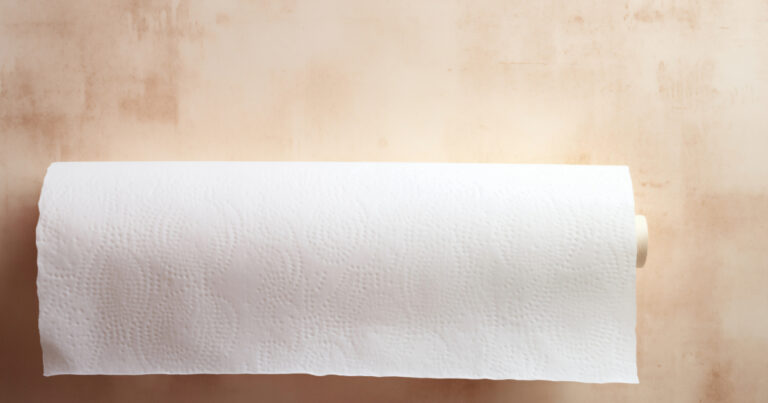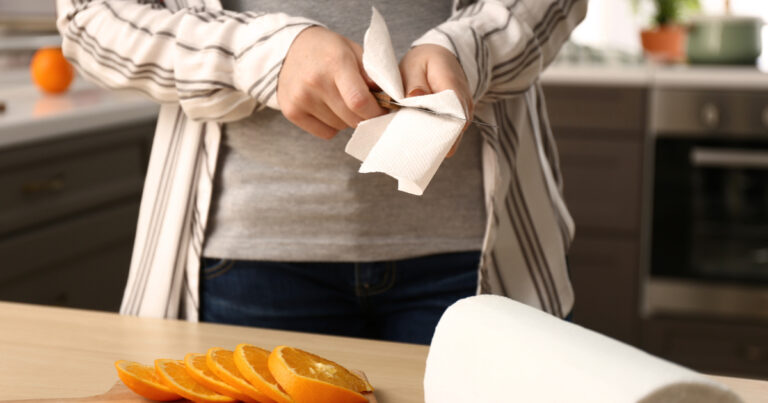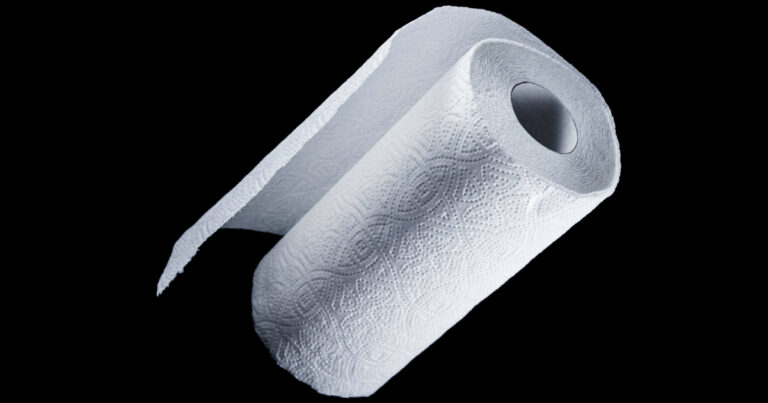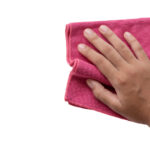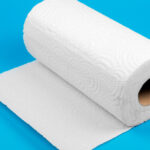Waking up to the aroma of freshly brewed coffee is one of life’s simple pleasures. But what if you stumble into the kitchen one morning, bleary-eyed and desperate for your caffeine fix, only to realize you’ve run out of coffee filters? Fear not, you can improvise with a paper towel or two.
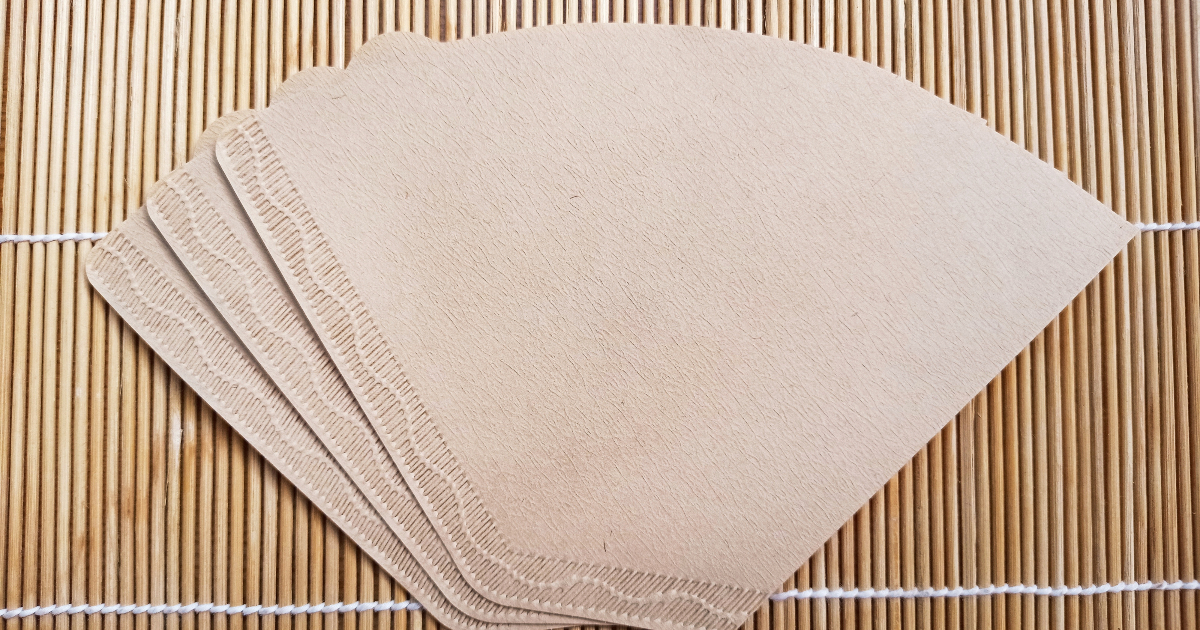
Using a paper towel as a coffee filter is a convenient, easy solution when you’re out of options. Paper towels are inexpensive, readily available in most homes, and their fine weave can effectively trap coffee grounds. But how well does a paper towel really work compared to a purpose-made filter?
How to Use a Paper Towel as a Coffee Filter
The process of using a paper towel as a filter is straightforward:
- Step 1: Take a full-size paper towel and fold it in half lengthwise. Fold it in half again widthwise to make a square.
- Step 2: Make a cone shape by bringing together the open sides of the square. The cone should be able to fit inside your coffee machine’s filter basket or drip cone.
- Step 3: Rinse the paper towel cone under hot water to remove any residues. Wetting it will also help the paper towel keep its shape.
- Step 4: Place the paper towel cone in your coffee maker’s filter basket, or set it inside a pour-over drip cone.
- Step 5: Add your preferred amount of coffee grounds into the filter.
- Step 6: Brew as you normally would, pouring hot water slowly over the grounds. The paper towel will filter the coffee into the carafe or mug below.
- Step 7: Carefully remove the soggy paper towel and discard after brewing. Rinse out any stray grounds.
And that’s all there is to it! With just a couple paper towels on hand, you can still enjoy a hot cup of joe.
Pros and Cons of Using Paper Towels as Coffee Filters
Let’s examine the benefits and drawbacks of using paper towels over regular coffee filters:
Pros
- Convenient and accessible: Paper towels are a household staple, making this an extremely convenient solution. No special trip to the store required.
- Inexpensive: A roll of paper towels costs very little, especially compared to a box of disposable cone filters or a reusable metal filter.
- Fine weave: The dense structure of paper towels can effectively trap most coffee grounds, resulting in relatively sediment-free coffee.
- Non-absorbent: Unlike other cloth filter substitutes, paper towels won’t absorb and waste your precious coffee oils.
Cons
- Thin and flimsy: Paper towels lack the sturdiness of real coffee filters. They can collapse or tear under the weight of wet grounds.
- Chemical residues: Most paper towels contain glues and bleaches that could leach into your brew. These trace chemicals may alter the flavor.
- Not reusable: Paper towels are single-use, generating more waste compared to reusable filters. Not the most eco-friendly option.
- May taste “papery”: The paper itself can lend an odd flavor to the coffee if the towel isn’t thoroughly rinsed first.
So in summary, paper towels make a quick and easy filter substitute, but aren’t necessarily ideal for everyday use. The taste and waste factors may outweigh the convenience for some coffee connoisseurs.
Choosing the Right Paper Towels
If using paper towels as coffee filters in a pinch, you’ll want to choose the right type of paper towel to get the best results:
- Opt for plain, unprinted brown paper towels – These tend to be more natural and chemical-free compared to bright white paper towels.
- Avoid heavily processed or recycled paper towels – These may contain inks, filler chemicals, or other impurities you don’t want in your coffee.
- Choose larger and more durable towel sheets – Select-a-Size and other large formats will be less likely to tear under the weight of wet grounds.
- Look for ones with a fine weave – You want something sturdy enough to contain fine coffee sediment.
With these criteria in mind, natural unbleached brown paper towels or even some cloth napkins can make passable impromptu coffee filters that won’t impart too many unwanted flavors.
Health and Safety Concerns
A common concern with using paper towels is whether any chemicals or impurities could leach out during brewing. Here’s what you need to know:
- Most mainstream paper towels are bleached with chlorine or oxygen bleaches. Traces may remain in the finished paper.
- Inks, glues, fillers and other manufacturing additives could also introduce contaminants.
- BPA, phthalates or other endocrine-disrupting compounds may be present in recycled paper.
However, occasional exposure to small amounts of these impurities is unlikely to pose significant health risks for most people. But those with chemical sensitivities or who drink several cups of coffee daily may want to avoid paper towel filters.
If in doubt, unbleached natural brown paper towels are likely the safest option. Giving the towel a good hot water rinse before brewing can also help remove any residual chemicals.
Using Paper Towels with Different Brew Methods
While paper towels can work with any drip coffee machine, their effectiveness varies across different brew methods:
- Automatic drip machines: Paper towels are well-supported in the filter basket and work fine.
- Pour-over drippers: More delicate, but paper towels perform decently. Go slowly and avoid overfilling.
- French press: Not applicable – French presses uses a metal mesh filter instead of disposable filters.
- Percolators: Don’t require a filter, so no need for paper towels.
- Cold brewing: Paper towels are too porous for cold water filtration. Use a finer mesh filter instead.
No matter your brewing method, take care not to overload the paper towel or let grounds spill over the sides. Their thinness and lack of sturdiness remains an Achilles heel compared to real disposable coffee filters.
Alternative Emergency Coffee Filters
While functional in a pinch, paper towels have some limitations. Fortunately, you have a few other options for improvising a coffee filter:
- Reusable tea bags: Fill with grounds, seal, and brew as you would tea leaves. No sediment slips through the mesh fabric.
- Cloth napkins or handkerchiefs: Fold and use to line your dripper. Rinse well after use. Be prepared for staining.
- Cheesecloth: Place over dripper basket. Its tight weave keeps fine grounds out of your coffee.
- Fine mesh sieve: Put grounds in cup, pour water over, then strain through mesh into your mug.
- French press: No filter needed! The metal mesh screen separates grounds from coffee.
These reusable materials eliminate waste and potential paper towel chemicals leaching into your morning brew. Try them out if paper towels don’t cut it for you.
Paper Towel vs. Reusable Filters
Here’s a quick comparison between paper towels and reusable coffee filters:
| Filter Type | Convenience | Waste | Flavor | Cost |
|---|---|---|---|---|
| Paper Towel | High | Single-use | Potential off-tastes | Cheap |
| Reusable | Medium | Minimal | Pure coffee flavor | Moderate initial cost |
Reusable filters require more upfront investment, but save money and waste over time while producing better-tasting coffee. Consider making the switch if you’re a regular coffee drinker.
Key Takeaway: Reusable filters beat paper towels for sustainability and taste, though paper towels offer more convenience in a pinch.
FAQs
Can you use printed paper towels as filters?
Avoid printed paper towels, as the dyes and inks can leach into your coffee. Stick to plain brown unbleached paper towels only.
How many paper towels do you need to filter coffee?
One standard size paper towel, folded into quarters, is sufficient to filter 1-2 cups of coffee. Use two towels layered for larger batches.
Should you rinse paper towels before using as filters?
Yes, rinse paper towels with hot water first to remove any chemical residues and improve the taste. It also prevents the towels from breaking down.
Can you reuse a paper towel as a coffee filter?
No, paper towels are too fragile to reuse after getting damp from hot coffee. Use a fresh towel for each batch of coffee.
Is it safe to ingest chemicals from paper towels?
Occasional use of paper towel filters poses minimal health risks for most people. But those with sensitivities may want to avoid them.
What happens if you use a paper towel without folding it?
The single flat sheet will likely tear under the weight of wet grounds. Proper folding provides multi-layered strength and support.
Conclusion
While not perfect, paper towels can work in a pinch as an emergency fix when you run out of real coffee filters.
Their convenience and availability in most kitchens make them a decent last-resort option.
However, for the best taste and sustainability, reusable filters are preferable for regular use over disposable paper towels.


